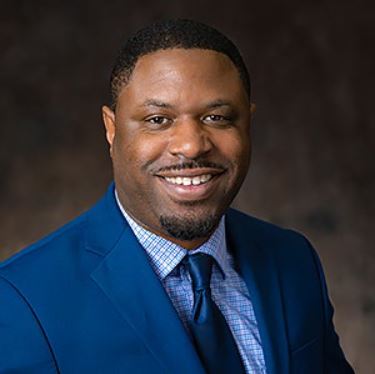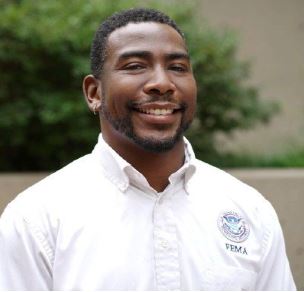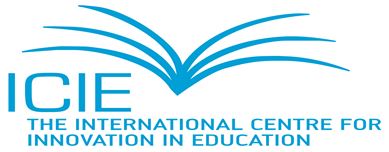W10
Creating Inclusive Classrooms for Students with a Stuttering Disability
Antonio L. Ellis; Christopher N. Smith
Students with a stuttering disability face unique challenges in educational settings that can impact their academic performance, social interactions, and overall well-being. Despite advances in understanding and supporting individuals with disabilities, there remains a need for greater awareness and implementation of inclusive practices in classrooms. This study explores strategies for creating inclusive classrooms that support the diverse needs of students with a stuttering disability, drawing on research and best practices in education, speech-language pathology, and disability studies. Recent studies have highlighted the importance of creating a supportive and inclusive environment for students with disabilities, including those with a stuttering disability (Blood & Blood, 2016; Byrd et al., 2018). Inclusive classrooms promote acceptance, understanding, and accommodation of individual differences, fostering a sense of belonging and reducing stigma associated with disabilities (Dowdy & Walton, 2018). By implementing inclusive practices, educators can create a positive learning environment that enhances the academic and social experiences of all students, including those with a stuttering disability.
This workshop will discuss various strategies for promoting inclusion in classrooms, including (1) raising awareness and understanding of stuttering among students and educators, (2) providing appropriate accommodations and support services, such as speech therapy and assistive technology, (3) fostering a culture of acceptance and respect for diversity, and (4) empowering students with a stuttering disability to advocate for their needs and participate fully in classroom activities (Kiger et al., 2020; Hughes & Gabel, 2019). Through case studies and practical examples, this presentation will highlight effective approaches for creating inclusive classrooms that prioritize the needs and experiences of students with a stuttering disability, ultimately contributing to a more equitable and supportive educational environment for all.
References
Blood, G. W., & Blood, I. M. (2016). Exploring the acceptance of stuttering: An ethnographic study. Journal of Fluency Disorders, 50, 38-50.
Byrd, C. T., Gkalitsiou, Z., Donaher, J., & Irani, F. (2018). Elementary and secondary students’ perceptions of stuttering. Journal of Fluency Disorders, 58, 47-59.
Dowdy, E., & Walton, C. (2018). Inclusive education: A practical guide to supporting diversity in the classroom. Routledge.
Hughes, S., & Gabel, R. M. (2019). Supporting students who stutter in inclusive classrooms. Young Exceptional Children, 22(2), 68-78.
Kiger, G., Murphy, K., & Allen, M. M. (2020). Supporting students who stutter: A guide for educators. Brookes Publishing.
Biographies
Dr. Antonio L. Ellis is a Senior Professorial Lecturer and Director of the Institute on Education Equity and Justice at the American University School of Education. He teaches special education courses and advises students in the educational leadership and policy doctoral program. He has served as an inclusion teacher, central office administrator, and school building administrator with the District of Columbia Public Schools. His passion is advocating on behalf of persons with disabilities, with a special emphasis on African American males who are speech impaired. Dr. Ellis’ research interests include social equity, pastoral care, pastoral ethics, educational leadership, multicultural education, critical race theory, and special education
Dr. Christopher N Smith is a Policy & Equity Advisor for the Federal Emergency Management Agency's Office of Business Management where Dr. Smith Co-Chairs the FEMA Pride LGBTQIA+ Employee Resource Group, contracts as a Diversity, Equity, Inclusion, Belonging and Accessibility expert and serves as a Security Forces officer in the District of Columbia Air National Guard. Prior to Chris's employment with FEMA Dr. Smith has worked with the District of Columbia Government as a Risk Manager, a Senior Advisor for the Department of Energy, a project consultant for various other agencies and an educator. Dr. Smith earned a Doctor of Philosophy in the Higher Education Leadership and Policy Studies Program at Howard University focusing their studies on the lived experiences of Consensual Non-Monogamous African American College Students.

Dr. Smith's prior education includes doctoral studies in Sociology, a Master of Arts in Religious Studies with a concentration in Religion and Society, and a Bachelor of Science in Psychology with a minor in Anthropology from Howard University. Currently, Dr. Smith is as an adjunct professor at South University and Southern New Hampshire University where they are a trailblazing educator creating and delivering groundbreaking curriculum on operationalizing justice, diversity, equity, inclusion, and accessibility in the federal, state and local and educational enterprises. Dr. Smith develops and reviews curriculum for The Institute for Diversity and Inclusion in Emergency Management (I-DIEM) focused on research and education understanding and serving vulnerable/under resourced populations in emergency management. Additionally, Dr. Smith has lectured at Lincoln University, Howard University, University of Maryland, American University, and Radford University, where I successfully designed and implemented courses focused on the intersections of DEI, civil rights, education, risk management, and social justice, receiving positive feedback from students and peers. Dr. Smith’s research has been published in reputable journals such as The Journal of Educational Foundations, Routledge Publishers, NASPA Gender and Sexuality Knowledge Community Lavender Paper, Sense Publishers, and The Journal of Black Sexuality and Relationships, and dedicated to producing scholarship that contributes to the broader conversation on equity in education. Additionally, Dr. Smith is on the board or active in a multitude of DEI organizations, such as the American Psychological Association (APA) Committee on Consensual Non-Monogamy (CNM), Relationship Equality Foundation, and Woodhull Freedom Foundation, where they draft anti-discrimination and domestic partnership legislation for CNM communities, advise on conference and continuing education programs on CNM and LGBTQIA communities and racial inclusion, education, and cultural awareness initiatives.


